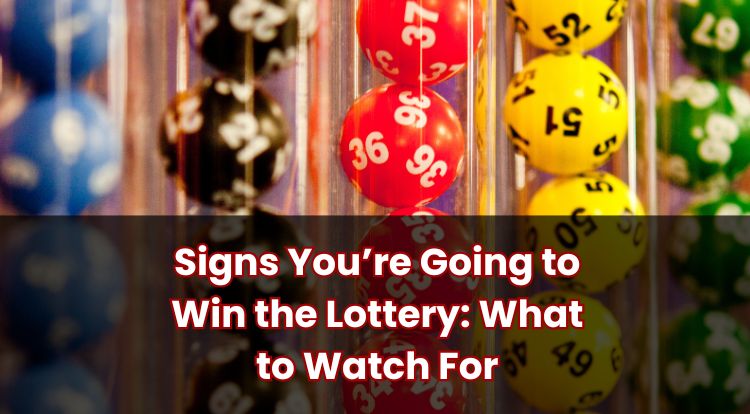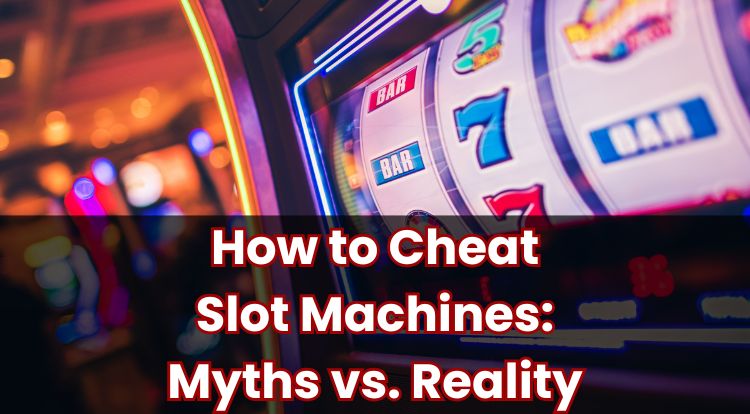Truth vs Myth: Are There Tricks to Winning Slots?
Stories about secret systems and hidden techniques for winning at slot machines have been around for years. Some sound convincing, others feel far-fetched, and it is not always easy to separate fact from fiction.
Here, we unpack how slots work, where common beliefs come from, and what certain in-game terms actually mean. By the end, you will have a clearer picture of what can influence your experience and what cannot, so you can make informed choices if you’re considering playing.
Read on to learn more.
What Does “Trick to Winning Slot Machines” Really Mean?
When people talk about “tricks,” they are usually thinking of a special method or shortcut that could tilt the odds in their favour. That might be a pattern to follow, a timing routine, or a belief that certain machines are more likely to pay.
These ideas often grow from second-hand stories or selective memories of past sessions. In the UK, regulated slot machines are designed to follow strict technical standards, meaning the outcome of each spin follows pre-set conditions. While some of those rules will be explored later, the important point is: a supposed trick usually turns out to be a myth.
Understanding what “trick” implies sets up the real question: if secret methods don’t work, what actually decides a spin?
How Do Slot Machines Actually Work?

Behind every spin is something you don’t see: a built-in system that determines results. This system uses Random Number Generator software, or RNG, which constantly produces sequences of numbers. These numbers map directly to the symbols on the reels.
When a player presses the spin button, the software selects a result based on the current number sequence—instantly. Each spin is completely independent, meaning what happened before doesn’t influence what happens next.
Games in the UK are tested and audited to make sure this software behaves fairly. What you see in a slot’s paytable, the display of payouts, symbols, and bonus rules, accurately reflects how the game performs. If a certain combination is supposed to pay, it will pay exactly that when it lands.
With this foundation of randomness and regulated rules, you can better evaluate claims about systems or strategies, which we’ll explore next.
Are There Proven Systems or Strategies for Beating Slots?
Some approaches get passed around as if they are secrets—like changing your bet after a win, playing in cycles, or setting personal spin limits. These methods may feel methodical, but they don’t interact with the RNG, which, as mentioned earlier, determines outcomes independently.
Techniques like betting progressions (e.g., increasing stakes after a loss) may change how your balance behaves over time but do not influence what results appear. Setting personal limits or having a “win goal” might help manage time or emotions, but again, they don’t improve the actual chance of a winning spin.
Slots are built so that no human strategy can bypass their random and regulated nature. That said, there are ways to choose games more wisely, especially when it comes to aspects like game volatility and return rates. These will be unpacked in more detail shortly.
Common Myths About Beating Slot Machines
Over time, a handful of repeated claims have taken on a life of their own. Some sound logical at first glance, but they break down under scrutiny:
- “This machine is due to pay.” As discussed, each spin is random and independent. Past outcomes don’t stack up to make a future win more likely.
- “There is a payout cycle you can track.” The RNG doesn’t follow visible or predictable patterns.
- “Pressing the button at a precise moment changes the result.” Timing doesn’t affect outcomes—the software has already selected the result by the time a player acts.
- “Apps or gadgets can force better results.” On regulated machines, external tools cannot alter outcomes.
- “Speeding up or slowing down play affects what lands.” Only the pace changes, not the actual results.
These myths often thrive because they feel intuitive or echo personal stories. If you choose to play, it’s better to look beyond these ideas and focus on what can actually be measured—like game mechanics, which we’ll explore in the next sections.
Why Do People Believe in Slot Machine Tricks?
There’s a psychological element at play here. People tend to remember when something “worked,” like trying a new method before a big win. Even if the result was random, our minds naturally connect events and create meaning where there may be none.
Slot design plays into this. Elements like near-misses, sound effects, and animations amplify emotional responses. These features make certain outcomes feel more important—or more likely—than they actually are.
This effect, known as confirmation bias, reinforces beliefs: when a pattern seems to lead to a win, it’s remembered; when it doesn’t, it’s dismissed. Add in the natural urge to make sense of unpredictable outcomes, and you get a fertile ground for trick theories to grow.
Understanding how the RNG works, as explained earlier, helps ground your expectations and prevents you from being pulled in by patterns that aren’t really there if you’re considering playing.
Play Slots & Online Casino Games
Understanding RTP and Volatility in Slots
So far, we’ve looked at how slot results are random and why common beliefs about influencing outcomes don’t quite hold up. But if you’ve ever read a game description, you’ve likely come across terms like RTP and volatility. What do they actually tell you?
RTP, or Return to Player, is a theoretical figure that suggests what a game is designed to return to players, on average, over time. For instance, if a slot has an RTP of 96%, that means it’s expected to return, on average, £96 to players for every £100 wagered—but only when spread across a very large number of spins. If you’re playing for a short time, your result could be much higher or lower. RTP isn’t a prediction for your session, but rather a guide to how the game is designed to behave over time over millions of spins.
Volatility, sometimes called variance, gives you a rough idea of how the game might “feel” to play. A high-volatility slot might have long, quiet patches with the chance of a big payout if wins do land. A low-volatility game, on the other hand, might offer more frequent wins, but in smaller amounts.
If you’re someone who enjoys regular activity, you might lean towards lower volatility. If you’re comfortable with a few ups and downs in the hope of hitting something larger, you might be more drawn to high-volatility titles.
While neither of these factors changes the randomness of each spin, they may help you choose a game that fits the kind of experience you’re looking for. And that can make your time playing feel more enjoyable and in line with your expectations.
Can Timing or Machine Selection Improve Your Chances?

Many people wonder if there are “better” times to play, like during quieter hours or certain days. While it’s tempting to think timing matters, it doesn’t. The RNG functions the same way all the time, unaffected by time of day or number of players.
That said, not all machines are identical. As introduced in the previous section, slot titles vary in key ways:
- RTP percentages can differ (within regulated ranges)
- Volatility changes how often and how big wins appear
- Features vary, such as free spins, jackpots, and wild symbols
If you choose to play, you can’t influence the outcome of any single spin, but you can pick games that suit your preferred pace and style of play. Reading the paytable and game info helps you identify what to expect. This doesn’t “beat the machine,” but it does let you better manage your experience.
So, while timing doesn’t help, understanding a slot’s published characteristics can make your session more enjoyable and better aligned with what you’re looking for—without relying on myths or guesswork.
Play Slots Online at Red Casino
At Red Casino, we offer a wide range of online slots, all tested to meet UK standards for fairness and transparency. We’re fully licensed and regulated by the UK Gambling Commission (UKGC), which means every game on our site operates under strict rules designed to protect players and ensure games behave as described.
Each title includes clear rules, paytables, and feature details, so you can see exactly how it works before you choose to play.
When you explore our collection, you’ll find a mix of popular favourites and new releases. If you want to manage your time or budget, our account tools are straightforward to use, and our support team is here if you need assistance.
Feel free to visit Red Casino and explore the range of games we have available in a secure environment.
**The information provided in this blog is intended for educational purposes and should not be construed as betting advice or a guarantee of success. Always gamble responsibly.
































































